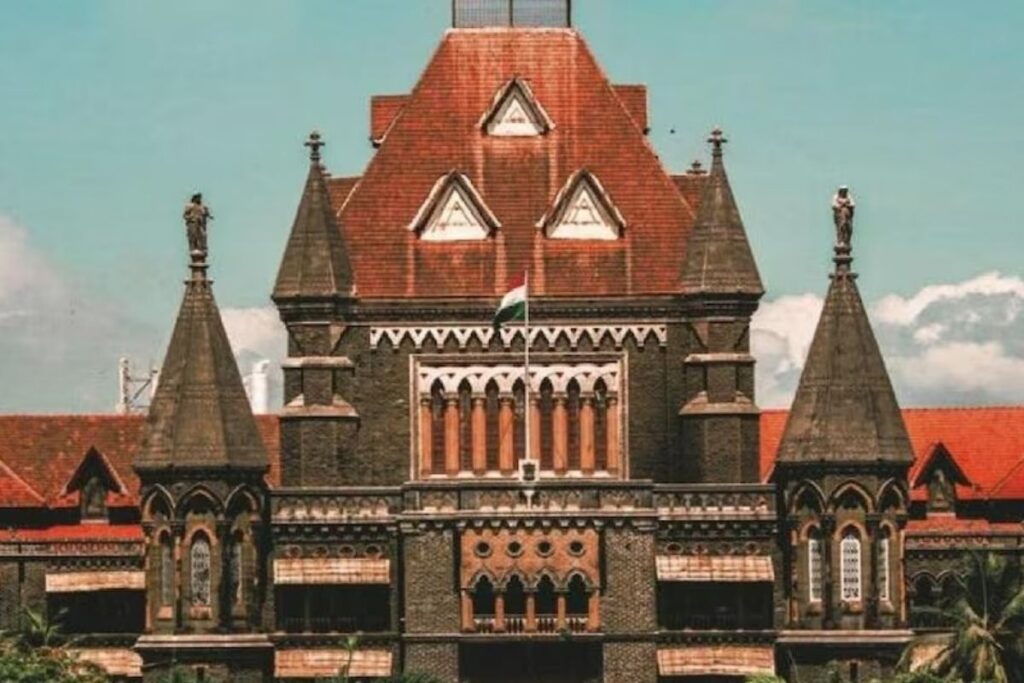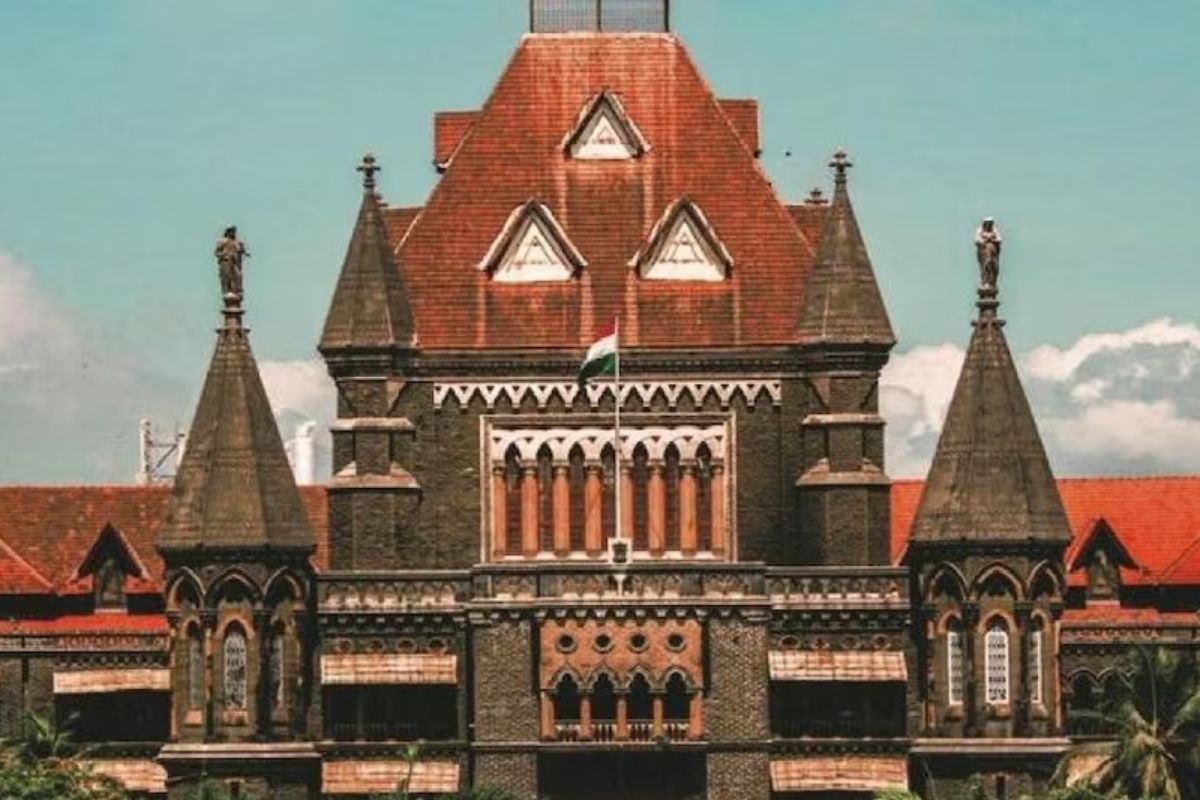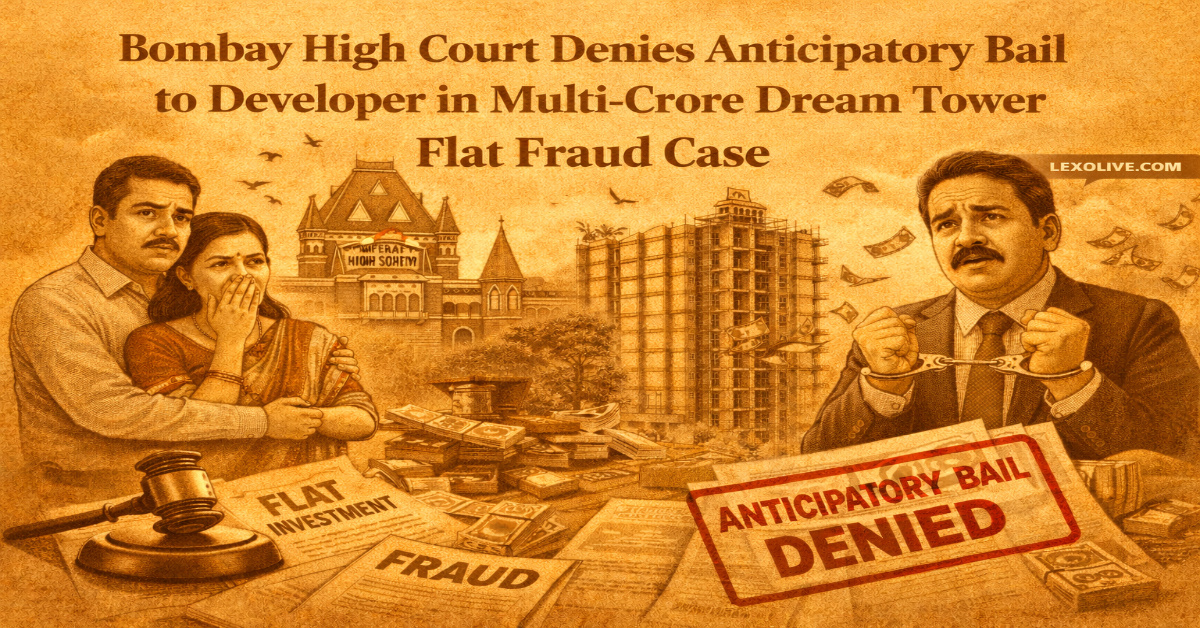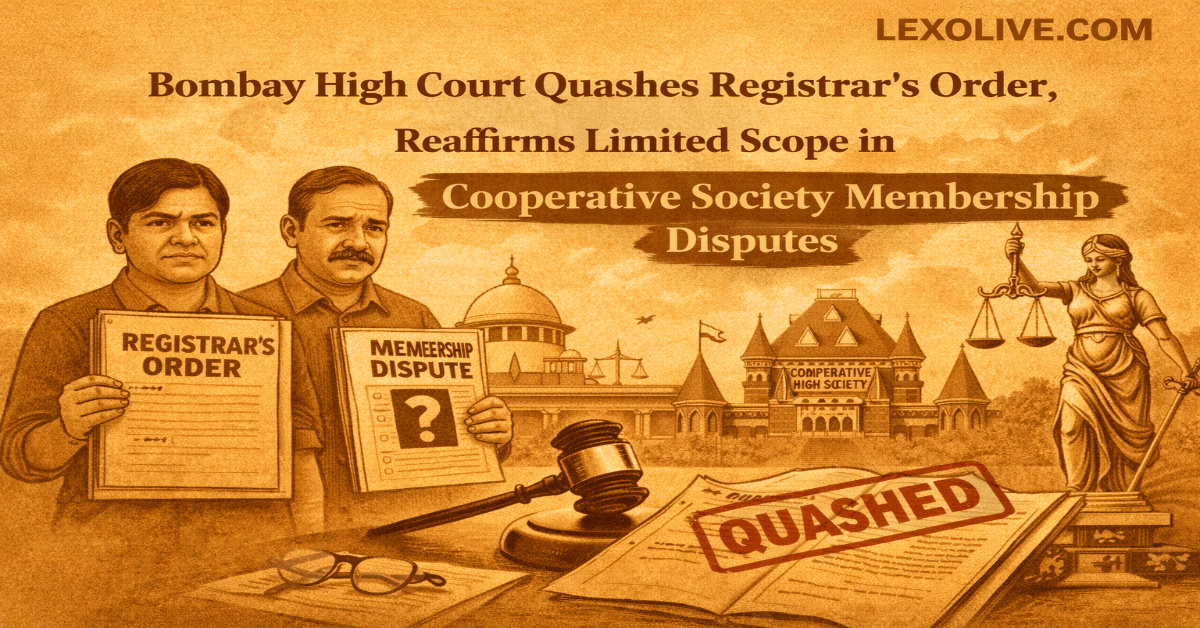
Mumbai, October 8, 2025: In a significant ruling, the Bombay High Court today dismissed a writ petition filed by Shripal Sevantilal Morakhia that sought to challenge an order merely “reserving” a matter for judgment by the National Company Law Tribunal (NCLT). The court not only rejected the petition as non-maintainable but also imposed a cost of ₹50,000 on the petitioner for insisting on arguing the case on merits despite the court’s view, thereby wasting the court’s valuable time.
Background of the Case
The legal dispute stems from corporate insolvency proceedings. The NCLT, Mumbai, had approved a resolution plan for a company on May 7, 2025. The petitioner, Shripal Morakhia, challenged this plan and also filed an Interim Application (IA No. 1985 of 2025) before the NCLT.
On August 4, 2025, after hearing the parties, the NCLT passed an order stating that the matter was “Reserved for Order.” This meant the tribunal had concluded hearings and would pronounce its decision at a later date.
Unsatisfied with the delay in the pronouncement, Mr. Morakhia moved the Bombay High Court under its writ jurisdiction (Article 226 of the Constitution). His primary contention was that Rule 150 of the NCLT Rules, 2016, mandates that an order should be pronounced within 30 days of the final hearing. Since the NCLT had not done so, he sought to quash the “reserved” order and stay the implementation of the approved resolution plan.
The High Court’s Reasoning and Order
A division bench comprising Justice R.I. Chagla and Justice Farhan P. Dubash dismissed the petition on two key grounds:
- Non-Maintainability of the Challenge: The court held that an order which simply “reserves” a matter for a future judgment is not a final, appealable order. It is an administrative step in the judicial process. Therefore, challenging a “reserved” order in a writ petition is not permissible, as there is no conclusive decision to challenge.
- Alternative Remedy Already Availed: The court noted that the petitioner had already exercised his statutory right of appeal under Section 61 of the Insolvency and Bankruptcy Code (IBC), 2016, before the National Company Law Appellate Tribunal (NCLAT). This appeal challenged the very same resolution plan. The NCLAT, in an order dated August 21, 2025, had already taken note of the pending reserved order and had directed the parties to place the NCLT’s final order on record once it was pronounced. The High Court stated that since an appellate forum was already seized of the matter, it was inappropriate to exercise its parallel writ jurisdiction.
The bench also found the petitioner’s reliance on the Kamal K. Singh judgment misplaced, noting that the cited case did not deal with a scenario where a time limit for pronouncing an order was not adhered to.
Imposition of Costs
A significant aspect of the order was the imposition of costs. The court observed that after being informed of its view on the petition’s non-maintainability, the petitioner’s counsel “insisted on going with the arguments on merits and thus wasting this Court’s time.”
Taking a strict view of this conduct, the court imposed a cost of ₹50,000, to be paid to the Indian Red Cross Society, Mumbai.
Conclusion
The Bombay High Court’s order reinforces the principle that courts will not interfere with interim or procedural steps in ongoing litigation, especially when a statutory appellate mechanism is already in motion. It underscores that a “reserved” order is not a fit subject for a writ petition. Furthermore, the ruling sends a strong message against pursuing unmeritorious litigation and wasting judicial resources, affirming that such actions will have financial consequences.
The matter will now proceed before the NCLAT, which will await the final order from the NCLT in the reserved interim application before continuing with the appeal.
Case Title: Shripal Sevantilal Morakhia vs. National Company Law Tribunal, Mumbai Bench & Ors.
Case Number: WRIT PETITION (L) NO.31679 OF 2025
For the Petitioner (Shripal Sevantilal Morakhia): Mr. Pratik Sarkar, Ms. Khirbha S.G., Instructed by Vidhi Legal
For Respondent No. 2: Mr. Shyam Kapadia (via Video Conference), Mr. Kunal Kaul, Ms. Fatema Kachwalla, Mr. Virgil Braganza, Instructed by JSA
For Respondent No. 3: Mr. Bhalahandra Palav, Mr. Aniket Dighe, Ms. Pinky Pawar
For Respondent No. 4: Mr. Ashish Kamat, Senior Counsel, Mr. Anirudh Gambhir, Mr. Madhav Kanoria, Ms. Surbhi Pareek Instructed by Cyril Amarchand Mangaldas
Read More:-



